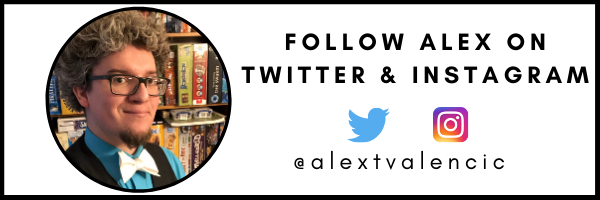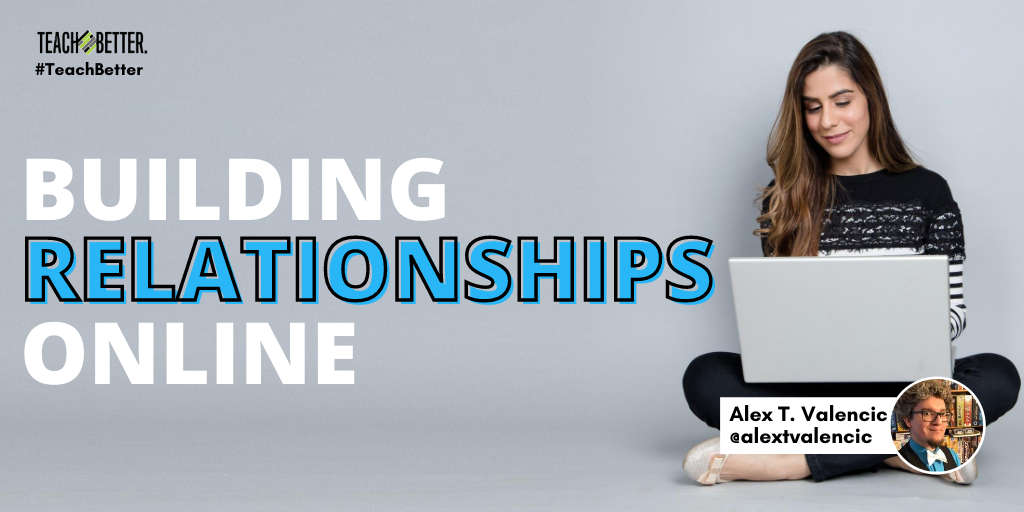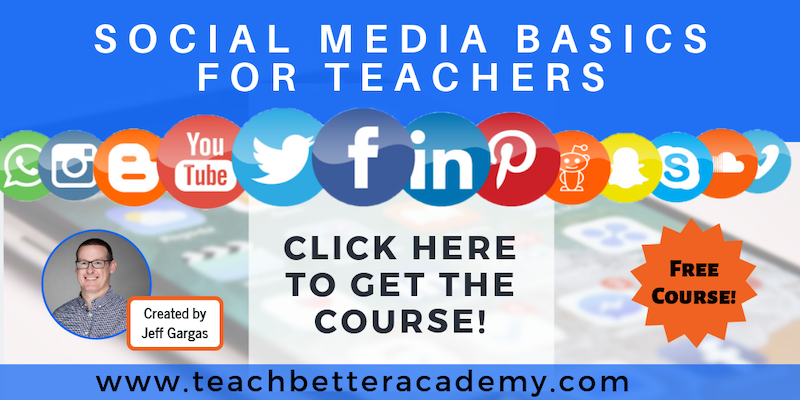TL;DR:
- You can build relationships online just as effectively as you can in person.
- Online relationships can be formed despite the barriers of time and distance.
- The relationships you build online can lead to long-lasting friendships.
- Build meaningful relationships with students in an online learning environment the same way you build connections online with colleagues.
Building Relationships Online Started Early for Me
I was fortunate to grow up in a household where my parents were both willing and able to be early adopters of new technology. We may not have been the first to use something, but we were often the first in our neighbourhood and among those in our social circles.
For example, America Online released its commercial online network service in 1991. By 1993, it was in our home. As soon as I turned 13, I was given my own profile with AOL. I have been an avid online community participant ever since.
Make sure you set aside time to share with one another and create a classroom community of learners who support and trust one another, but also take advantage of unplanned opportunities to share. Click To Tweet
Building Relationships Online from All Over the World
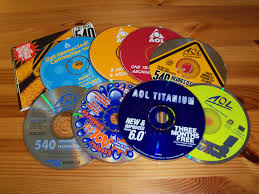
Perhaps this is why I was so irritated when I read this quote from a recent New York Times op-ed piece: “Office rituals – small talk in the kitchenette, drinks after work – exist for good reason. They elevate the spirit; dare I say, they make people feel included, and loved. Meaningful bonds just cannot be made over Zoom.”
I have been connecting with people from all over the world for over 24 years now. I’ve done this through different online platforms and community, whether AOL chatrooms, bulletin-board format websites, instant messaging software like AIM or ICQ, or modern social media like Facebook and Twitter. There are thousands of people in my network of friends and close acquaintances that I have never met in person or even spoken to live via a video or audio call (even though many of the above softwares mentioned offer video or audio calling, like ICQ download Windows 7 32 bit).
And yet these same men and women are some of my closest friends and colleagues. We know each other’s birthdays and anniversaries, and favourite movies and foods. And we keep up on jobs, education, and family drama. Heck, we even know what’s going on in terms of the weather, and sometimes alert one another to severe weather before those who actually live in the area know about it!
A friend is “a person whom one knows and with whom one has a bond of mutual affection, typically exclusive of sexual or family relations.”
By all measures, those individuals meet the basic criteria of being considered friends. These relationships are very much meaningful and are very binding. We share in one another’s joys and we join in one another’s sorrows.
Building Relationships Online Can Lead to Lifelong Friendships
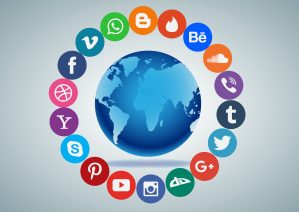
Yes, it is wonderful to meet these online friends in person. Not because that in-person meeting makes the relationship any more real.
It is because of all things you can do in person with friends that you can’t do online: have physical contact and play some complex tabletop games like Wizards of the Coast‘s classic, Dungeons and Dragons.
There you have it, the full list of all the things you can do in person that you can’t do online.
There is seriously nothing else when it comes to developing relationships and making meaningful bonds. I would even argue that virtual relationships make it easier to form relationships and make bonds because it takes away some of the physical barriers, whether it is speech, language, sight, sound, or even smell. Take away those things that cause implicit biases to rear their heads or prejudices based on first impressions, and it is amazing what may happen.
Young people understand how easy it is to form friendships over online communities. Just ask a young person about his or her friends in an online video game. Many of them do not even know each other’s real names. (If you haven’t done so yet, go read the book Ready Player One by Ernest Cline, or The Leveller by Julia Durango and you’ll see what I mean.) There are also many adults who understand this idea.
[scroll down to keep reading]Developing a Sense of Community
As a Teach Better Ambassador, I get to work closely with many members of the Teach Better Team along with the other two dozen or so ambassadors. Of this group, I have met just one of them in person. And that was entirely by the sheer coincidence that we happened to sit near each other during Teach Better 19 and then found out we both live in northern Illinois. And yet, I feel a closeness to every single one of these amazing educators!
Many teachers are concerned about how they will develop a sense of community, and how they will forge meaningful relationships with students and staff in an online learning environment. They ask questions like, “How will I get to know my students?” or “How can I form relationships with them when we aren’t in the same room together?”
My answer is simple: The same way you always have! Ask questions. Answer questions. Share. Be you. Make sure you set aside time to share with one another and create a classroom community of learners who support and trust one another, but also take advantage of unplanned opportunities to share.
When your dog jumps up on your lap during your virtual math lesson, introduce her to the class. Your students will want to show you their dogs and cats and fish and parakeets and guinea pigs, too. Don’t get flustered because it is taking time away from your math lesson. Welcome it as a moment to bond over the furs, fins, and feathers you have in common!
There is no reason for the technology we are using—whether it is Zoom, Google Meets or something else—to be a barrier to forming relationships with students. And I promise you, those relationships will be just as true and real as they are in person.
Don’t let anyone tell you otherwise.
About Alex T. Valencic
Alex Valencic is an educator, former small business owner, Boy Scout, volunteer drug prevention specialist, unrepentant bibliophile, and a geek of all things. He worked as a substitute teacher for three years before achieving his lifelong dream of teaching fourth grade, which he did for seven years in Urbana, Illinois, before accepting his current position as the Curriculum Coordinator for 21st Century Teaching and Learning in Freeport, Illinois, where he not only supports innovative educational practices in the classroom but also oversees social studies, science, and nearly all of the elective courses in the district.
